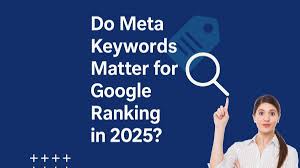What Is Smart Digital Marketing in 2025?
Smart digital marketing in 2025 is more than just being online; it’s about leveraging automation, AI, personalized experiences, and data-backed strategies to connect with users and drive conversions.
Unlike traditional marketing, this approach adapts in real-time using:
- Behavioral data
- Machine learning insights
- AI-generated content strategies
- Integrated tools like Google Analytics 4, Rank Math, and ChatGPT
Smart digital marketers build sustainable growth, not one-hit campaigns.
The Role of SEO in Modern Digital Strategy
SEO (Search Engine Optimization) is the foundation of online visibility. In 2025, it’s more aligned with user intent, semantic understanding, and experience-driven content.
Why SEO Still Matters:
- 75% of users never scroll past the first page of Google
- Organic traffic converts better than paid ads in most niches
- Search engines reward relevance + authority, + technical structure
Core SEO Tactics in 2025:
| Category | Focus Areas |
|---|---|
| User Intent | Align content with what users are searching for |
| Semantic SEO | Use LSI (Latent Semantic Indexing) keywords to support core terms |
| Technical SEO | Speed, mobile UX, indexing, schema markup |
| On-Page SEO | Headings (H1-H6), keyword placement, internal linking, Rank Math structure |
| Off-Page SEO | Backlinks, brand mentions, PR, social shares |
Mastering Meta Tags: Your Google Billboard
Meta tags act as your search listing preview. They help search engines and users decide if your content is worth clicking.
Essential Meta Tags in 2025:
| Tag Type | Best Practice |
|---|---|
| Title Tag | Under 60 characters, includes main keyword, no fluff |
| Meta Description | 140–160 characters summarize the benefits of the page |
| Header Tags (H1–H6) | Hierarchical and informative, not just for styling |
| Alt Text for Images | Descriptive for accessibility and image SEO |
| Canonical Tags | Prevents duplicate content issues |
Use Rank Math or the Yoast SEO plugin to manage all meta elements inside WordPress.
Keyword Strategy: What Works in 2025
Keywords remain the backbone of search strategy, but how we use them has evolved.
Focus on:
- Long-Tail Keywords: “Best SEO tools for health blogs”
- LSI Keywords: Related terms like “SEO audit,” “search engine visibility”
- Conversational Queries: Great for voice search and AI assistants
Tools to Use:
On-Page vs. Off-Page SEO: Smart Optimization
On-Page SEO Checklist:
- The keyword in H1 and the first paragraph
- SEO-optimized images (compressed + alt text)
- Clean URLs (
/seo-tips-2025, not/page1234) - Schema markup for FAQs or reviews
Off-Page SEO Techniques:
- Backlink Strategy: Outreach to blogs, HARO, niche guest posts
- Social Signals: Sharing content across platforms
- Digital PR: Be quoted in expert roundups and media stories
The best backlinks come from relevance + authority.
AI and Automation in SEO
AI tools are transforming the way digital marketers operate.
Benefits of AI in Smart Marketing:
| Function | Tool Example | Result |
|---|---|---|
| Keyword Research | ChatGPT + SEMrush | Faster discovery of opportunities |
| Content Optimization | Surfer SEO, NeuronWriter | Better ranking content |
| Reporting & Audits | Screaming Frog + GA4 | Real-time issue detection |
Mobile Optimization: User Experience Is Non-Negotiable
Mobile-First SEO Tips:
- Use responsive design for all screen sizes
- Keep CTA buttons thumb-friendly
- Compress images for faster loads
- Use lazy loading for long-form content
Tip: Test your site on PageSpeed Insights and aim for 90+ on mobile.
Measuring SEO Performance the Smart Way
Analytics is at the core of smart digital marketing. You can’t improve what you don’t track.
Recommended Tools:
- Google Analytics 4: Tracks behavior, sources, and conversions
- Google Search Console: Monitors ranking keywords and technical issues
- Hotjar: Records user behavior and heatmaps
- Looker Studio: Create dashboards combining data from multiple platforms
Future-Proof Digital Marketing Trends for 2025
| Trend | How to Leverage It |
|---|---|
| Voice Search | Use natural, question-based language (“how do I improve SEO rankings?”) |
| Visual Search | Add alt tags, use image sitemaps, and compress all visuals |
| Personalization | Segment users in email/ads and use dynamic content |
| Video SEO | Optimize titles, descriptions, and transcriptions on YouTube & embedded video |
| Zero-Click Results | Use schema markup (FAQs, how-to, product) for rich snippets |
Smart Digital Marketing Keywords
Primary Focus Keywords:
- Smart Digital Marketing 2025
- SEO strategy for beginners
- Meta tags optimization
- Keyword research 2025
- Google ranking tips
LSI Keywords:
- How to rank on Google
- Long-tail keyword strategy
- SEO tools and tips
- On-page SEO checklist
- Voice search optimization
Final Thoughts: Master Smart Marketing in 2025
If you’re serious about growing online in 2025, Smart Digital Marketing isn’t optional; it’s essential.
By combining technical SEO, meta optimization, keyword strategy, and the latest AI-powered tools, you build a digital engine that works around the clock to attract, engage, and convert users.
Ready to get started? Begin with a full SEO audit using Google Search Console and Rank Math, then tackle one section at a time with this guide.



